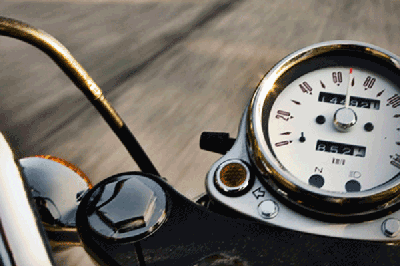Common misconceptions about motorcycle insurance

Insurance is a word that can incite many emotions; it can signify security, but it can also cause confusion when trying to understand what is and isn’t covered under your policy when a loss occurs. As motorcycle insurance specialists, we know just how mystifying this can be. To help you out, we clarified four of the more common misconceptions people have about their insurance.
Misconception: "I have health insurance. I don’t need medical payments coverage on my motorcycle policy."
Many people decline medical payments (or “med pay”) coverage because they have a health insurance plan. They assume that the medical expenses due to injury resulting from a motorcycle accident will be covered 100% by their health insurance.
Med pay, which is optional in most states, covers reasonable medical expenses (and also funeral expenses) if an accident were to occur, regardless of fault. It is typically secondary to an individual’s health insurance, but can become the primary coverage if an individual does not have health insurance, if motorcycle-related injuries are excluded from their health insurance, or if they are on Medicare or Medicaid. Med pay also helps with the out-of-pocket expenses that health insurance plans normally don’t cover, such as deductibles and co-pays—expenses that can add up in a hurry! Coverage amounts vary by state and insurance carrier, and usually apply to both you and any passenger on your motorcycle at the time of an accident, regardless of fault.
It is very important to evaluate your insurance needs and optional coverages, such as med pay, before you purchase your policy. We have seen cases where an individual will lose their job, and subsequently their health insurance, and then have an accident. Without med pay, there may be little option to recoup any of your medical bills from the accident.
Misconception: "My credit history has nothing to do with my insurance premium."
A growing trend in the insurance industry is the use of insurance scoring to determine an individual’s insurance rate. Insurance scores have been proven to reliably predict an individual's likelihood of filing an insurance claim. Don’t confuse an insurance score with a credit score, though. The risk of filing an insurance claim is different than a credit risk. While income is not used in developing your insurance score, “responsibility type factors”, including your credit card payment history, number of revolving accounts, number of new accounts, the presence of collection accounts, bankruptcies, foreclosures, etc., may be.
A few important notes about insurance scoring:
- Insurance scoring does not take into account things such as income, education, ethnicity, age, or gender—it's more of a measure of financial responsibility.
- Unlike credit checks when applying for a loan, insurance scoring is a "soft hit" inquiry on your credit and does NOT impact your credit score.
- While many insurance companies may have access to your insurance score, they do not actually see your credit score or your credit history.
Each insurance company may have different reasoning for why they do or do not use insurance scoring. Given all of the factors considered when developing an insurance score, it is a reliable predictor of a person’s behavior, which allows for better alignment when setting insurance rates.
Misconception: Comprehensive and collision coverage are interchangeable.
Two of the more commonly used terms throughout the insurance industry are comprehensive and collision.
Collision: Provides protection for the physical damage to your bike when it hits or is hit by another vehicle or object.
Comprehensive: Provides protection for damage not caused by collision, and usually covers things such as theft, fire, vandalism, weather damage, or hitting an animal. It is also sometimes called "other than collision" or OTC.
While comprehensive and collision are both optional coverages, most lienholders do require them—and for good reason. Comprehensive and collision coverages are designed to help get your bike fixed and back on the road as quickly as possible. If you are in an accident on a motorcycle, chances are, there will be some damage.
Keep in mind that comprehensive and collision coverages only cover damages done to your bike. If you cause damages to someone else’s vehicle or property and are found legally liable, those damages would be covered under property damage liability coverage.
Misconception: "My driving record in my car has nothing to do with my motorcycle insurance."
When shopping for insurance for your bike, you will usually be asked to disclose any accidents and/or violations you have had within the past three years.
Statistically speaking, a person's driving behavior is consistent whether in a car or on a motorcycle. Someone with multiple accidents and/or violations is considered a bigger insurance risk, when compared to someone without any accidents or violations. Because of this increased risk, your insurance rates will most likely be higher than if you had a clean driving record.
Fortunately, “behavior” type factors can also work in your favor. Preventative measures such as taking motorcycle safety courses will also be taken into consideration when obtaining an insurance quote and could qualify you for discounts on your premium.
We hope this information has helped to clarify some of the misconceptions you may have had about your motorcycle insurance. If you have any additional questions or concerns, please call us at 800-236-2453 and we’ll help get you the answer you’re looking for.

Tags
Policies as low as $50 per year.
Enter your zip code to get a fast, free online quote. Plus, save up to 35% with our discounts, including 10% just for switching.
Or call +1.800.236.2453 to speak with a motorcycle insurance specialist.
